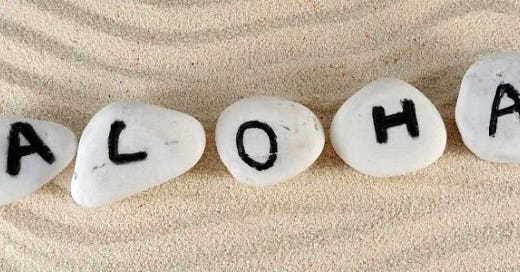In 2008, the United States Supreme Court decided in the Heller case that the Second Amendment right to bear arms applies not just to militias, but also to individual people. While militias are mentioned in the Amendment, the noun to which the right is granted is the “people.”
Individuals are “people.”
After Heller, much teeth-gnashing and garment-rending ensued from the left. They had hoped that the Second Amendment applied only to militias. There being essentially no legal militias in the country anymore, that would mean the Second Amendment would apply to nobody.
And so, nobody could have guns. Well, nobody could have guns legally. Anyone with a gun would be in possession of it illegally. (You know where I’m going with this.) Such illegal possession of a gun would be outside the law. The possessor would be an outlaw. When guns are outlawed, only outlaws will have guns.
You gotta admit, that’s a pretty good line.
Heller has been the law of the land for the 15 years since it was decided. (And arguably was the law of the land before then too. The Supreme Court for a couple of centuries had not said otherwise – they mostly dodged making a decision whenever the question came up.)
Ah, but then came along another Supreme Court. Namely, the Supreme Court of Hawaii. Call them the Aloha Court since, as we’ll see, they sort of call themselves that.
Like other states, Hawaii has a state constitution. It’s a relatively recent one since Hawaii is a relatively recent state. It dates to just 1949. The Hawaii state constitution contains a parallel to the Second Amendment. In fact, the Hawaii parallel is identical to the Second Amendment with the exception of a couple of inconsequential commas.
Hawaii nonetheless has a state law restricting the carrying of firearms. A Hawaii resident disobeyed that law. He was prosecuted. His defense was that the state law was in violation of the Supreme Court’s decision in Heller. His case went up to the Aloha Court.
The Aloha Court held that the language of the Hawaii constitutional provision that is identical to the Second Amendment should not be construed in the same way that the Supreme Court had construed the Second Amendment. It should be construed more narrowly. “People” should mean “militias.” On that narrow construction, the defendant lost since standing alone he was not a militia.
Fine. It’s a bit odd for state judges to conclude that language in their state constitution should be construed differently than the Supreme Court construes identical language in the U.S. Constitution. But it’s not impossible. The state constitution and the U.S. Constitution are different documents with different drafters, different aims, and different circumstances.
But deciding that the Hawaii constitution did not protect the defendant is not enough to dispose of the case.
The defendant still has the protections of the U.S. Constitution. Every citizen of the United States is protected by the Bill of Rights to the U.S. Constitution, i.e. the first ten amendments, including the Second. The Aloha Court was therefore obligated to consider the Second Amendment itself, not just Hawaii’s parallel language in its own state constitution.
That should have made for an easy decision. Heller says the defendant wins. Indeed, that’s what the lower court said in Hawaii.
The Aloha Court said otherwise. First, they said the U.S. Supreme Court’s decision in Heller was wrong. But the job for lower courts is not to criticize Supreme Court decisions; their job is simply to apply them to the case at hand. U.S. Supreme Court constitutional decisions can be overruled by only the Supreme Court itself.
The Aloha Court gave lip service to the bedrock principle that a Hawaii resident was entitled to the protections of the U.S. Constitution as interpreted by the U.S. Supreme Court, but then denied him those protections. Citing (but not defining) the “Aloha Spirit” of Hawaii, the Aloha Court blatantly and explicitly rejected the law of Heller.
The defendant says he plans to appeal to the real Supreme Court. It will be hard for his appeal to be rejected.
Else we may next see the Aloha Court holding that the “Aloha Spirit” of Hawaii allows prosecution of their critics (including yours truly!) notwithstanding the First Amendment, and the “Aloha Spirit” of Hawaii allows seizure of their critics’ property notwithstanding the Fourth Amendment, and the “Aloha Spirit” of Hawaii allows their critics to be summarily jailed notwithstanding the Fifth Amendment, and the “Aloha Spirit” of Hawaii allows their critics to be tortured and hanged from palm trees notwithstanding the Eighth Amendment.
Aloha!




Aloha nullification. Quite the concept. Actually, I don’t think either the word or the spirit existed much before the early 19th century, in what had been as brutal a society as any other, Rousseau’s “noble savage” crap notwithstanding. Not that the U.S. annexation of the place was a particularly pretty piece of work, either.
One very minor correction: Statehood was in 1959, not ‘49 as your text implies.
Great piece, which touches on so much of what ails us.
"The constitutional right to bear arms in public for self-defense is not 'a second-class right', subject to an entirely different body of rules than the other Bill of Rights guarantees."
Justice Clarence Thomas